Description
Hector Taking Leave Of Andromache by Jean Restout the Younger printed on a T-Shirt
About the T-Shirt
Regular fit
Standard length, the fabric easily gives into movement
Casual wear
A classic, everyday option loved by our customers
Side-seamed
Constructed by sewing two parts together, creating a fitted look
The Unisex Staple T-Shirt feels soft and light with just the right amount of stretch. It’s comfortable and flattering for all. We can’t compliment this shirt enough–it’s one of our crowd favorites, and it’s sure to be your next favorite too!
- Solid colors are 100% Airlume combed and ring-spun cotton
- Ash color is 99% combed and ring-spun cotton, 1% polyester
- Heather colors are 52% combed and ring-spun cotton, 48% polyester
- Athletic and Black Heather are 90% combed and ring-spun cotton, 10% polyester
- Heather Prism colors are 99% combed and ring-spun cotton, 1% polyester
- Fabric weight: 4.2 oz./yd.² (142 g/m²)
- Pre-shrunk fabric
- 30 singles
- Side-seamed construction
- Tear-away label
- Shoulder-to-shoulder taping
- Blank product sourced from Nicaragua, Mexico, Honduras, or the US
Jean Restout the Younger (1692 – 1768)
Jean Restout the Younger was a French artist, who worked in painting and drawing. Although little remembered today, Restout was well-respected by his contemporaries for his religious compositions.
Restout was born in the city of Rouen in Normandy on 26 March 1692. He was a son and pupil of Jean Restout the Elder, a church painter from Caen. His mother, Marie Madeleine Jouvenet (c. 1655 – before 1729), was also an artist and a sister of the famed painter Jean Jouvenet.
Jean Restout the Elder died suddenly in 1702 and thereafter two of his brothers, the artists Jacques and Eustache, cared for the ten-year-old Restout. In 1707, following their introduction to one another by Eustache, Restout entered Jouvenet’s studio in Paris. He rose to a position of some importance while there, even assisting his uncle in the completion of his last commissions. Furthermore, Jouvenet gave Restout the majority of his many drawings, a number of which were figure studies.
On 29 May 1717, Restout was admitted to the Académie Royale de Peinture et de Sculpture as an agréé or associate following his submission of the painting Venus Ordering Arms from Vulcan for Aeneas. He evidently prepared an additional, complementary work for the Academy entitled Venus Presenting Arms to Aeneas. Both paintings may have been composed in anticipation of that year’s Prix de Rome competition, but apparently Restout only thought about entering the contest as he was not among the April finalists.
Restout’s career as a religious painter began in earnest in 1730, when he received a dual commission from the Benedictine abbey at Bourgueil near Chinon. Both paintings, the Ecstasy of St Benedict and the Death of St. Scholastica, center around monastic figures.
In 1729, Restout married Marie-Anne Hallé (1704–1784), daughter of Academy painter Claude-Guy Hallé. In 1732, she gave birth to their only child, Jean-Bernard Restout. He, like his father, had a successful, though rather conventional, painting career: he won the Prix de Rome in 1758, was admitted to the Academy in 1769, and exhibited regularly at the Paris Salon.
Restout died in the Louvre Palace on 1 January 1768. His late baroque classicism rendered his altarpieces, such as the Death of St. Scholastica an isolated achievement that ran counter to his rococo contemporaries.

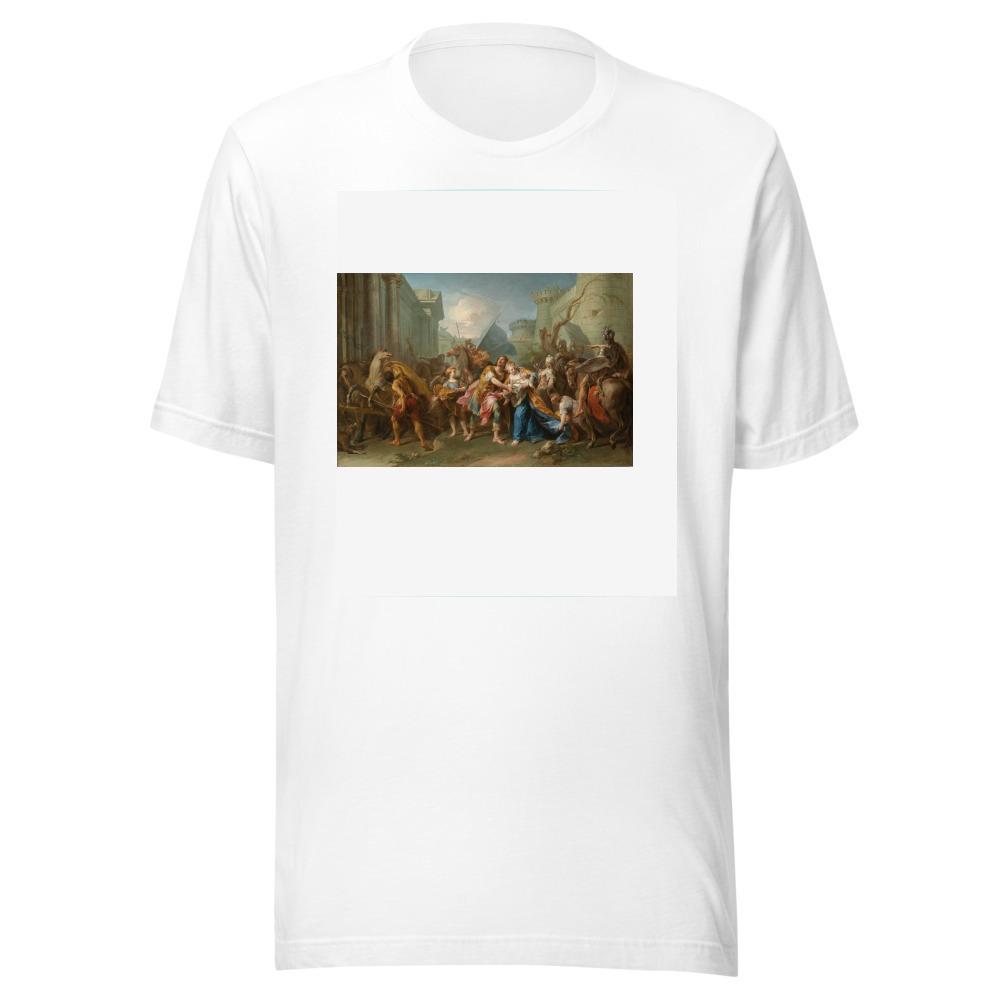
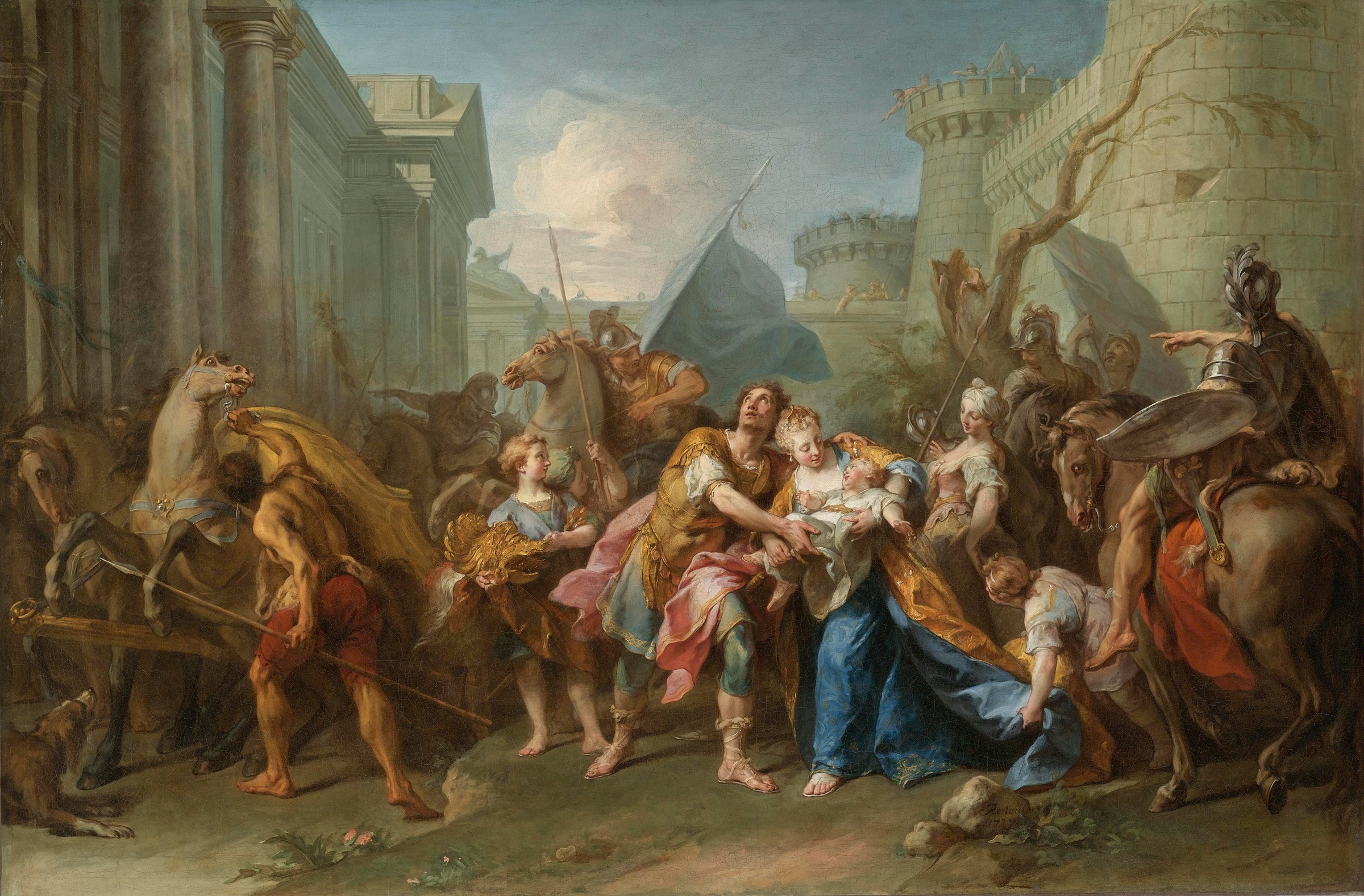
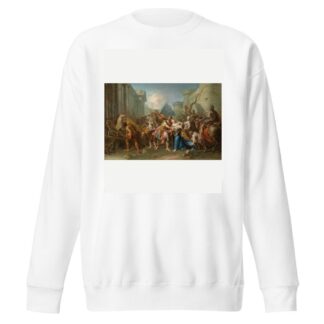
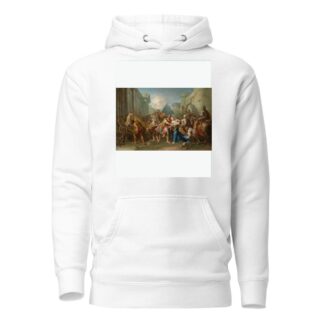
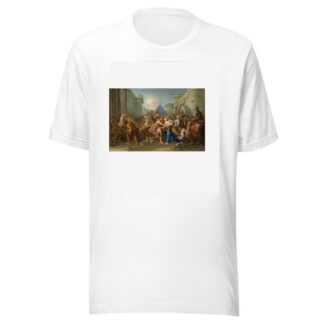
Reviews
There are no reviews yet.